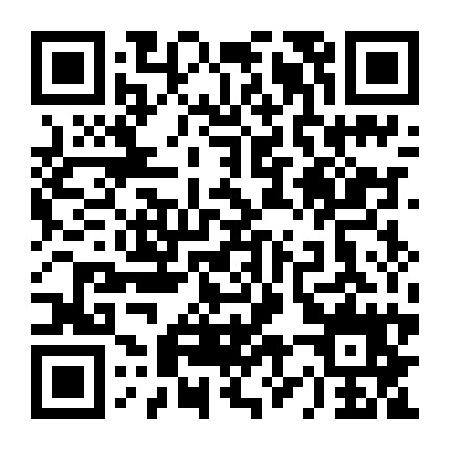医学博士英语统一考试之后,即将迎来各院校的考博英语初试,英语考试的备考,参考历年真题是一个很重要的备考过程,今天新东方在线小编给大家整理了东北林业大学2018年考博英语真题,帮助大家更好的备考,考博英语考试,一起来看看吧!
Most scholars agree that Isaac Newton, while formulating the laws of force and gravity and inventing the calculus in the late 1600s, probably knew all the science there was to know at the time. In the ensuing 350 years an estimated 50 million research papers and innumerable books have been published in the natural sciences and mathematics. The modem high school student probably now possesses more scientific knowledge than Newton did, yet science to many people seems to be an impenetrable mountain of facts.
One way scientists have tried to cope with this mountain is by becoming more and more specialized. Another strategy for coping with the mountain of information is to largely ignore it. That shouldn’ t come as a surprise. Sure, you have to know a lot to be a scientist, but knowing a lot is not what makes a scientist. What makes a scientist is ignorance. This may sound ridiculous, but for scientists the facts are just a starting place. In science, every new discovery raises 10 new questions.
By this calculation, ignorance will always grow faster than knowledge. Scientists and laypeople alike would agree that for all we have come to know, there is far more we don’t know. More important, every day there is far more we know we don’t know. One crucial outcome of scientific knowledge is to generate new and better ways of being ignorant: not the kind of ignorance that is associated with a lack of curiosity or education but rather a cultivated, high-quality ignorance. This gets to the essence of what scientists do: they make distinctions between qualities of ignorance. They do it in grant proposals and over beers at meetings. As James Clerk Maxwell, probably the greatest physicist between Newton and Einstein, said, “Thoroughly conscious ignorance... is a prelude to every real advance in knowledge. ”
This perspective on science - that it is about the questions more than the answers—should come as something of a relief. It makes science less threatening and far more friendly and, in fact, fun. Science becomes a series of elegant puzzles and puzzles within puzzles—and who doesn ’ t like puzzles? Questions are also more accessible and often more interesting than answers ; answers tend to be the end of the process, whereas questions have you in the thick of things. Lately this side of science has taken a backseat in the public mind to what I call the accumulation view of science—that it is a pile of facts way too big for us to ever hope to conquer. But if scientists would talk about the questions, and if the media reported not only on new discoveries but the questions they answered and the new puzzles they created, and if educators stopped trafficking in
facts that are already available on Wikipedia-then we might find a public once again engaged in this great adventure that has been going on for the past 15 generations.
46. Which of the following would most scholars agree to about Newton and science?
A. Newton was the only person who knew all the science in the 1600s.
B. Newton’s laws of force and gravity dominated science for 350 years.
C. Since Newton’s time, science has developed into a mountain of facts.
D. A high school student probably knows more science than Newton did.
47. Which of the following is best supported in this passage?
A. A scientist is a master of knowledge.
B. Knowledge generates better ignorance.
C. Ignorance is a sign of lack of education.
D. Good scientists are thoroughly ignorant.
48. Why is it a relief that science is about the questions more than the answers?
A. Because people like solving puzzles.
B. Because questions make science accessible.
G. Because there are more questions than answers.
D. Because questions point the way to deep answers.
49. The expression “take a backseat”(line 1,paragraph 5) probably means _•
A. take a back place
B. have a different role
C. be of greater priority
D. become less important
50. What is the author’s greatest concern in the passage?
A. The involvement of the public in science.
B. Scientists,enjoyment of ignorance.
C. The accumulation of scientific knowledge.
D. Newton’s standing in the history of science.
考博必备!历年真题及答案
考博精品好课,就选新东方!

 资料下载
资料下载
【必看】考博英语词汇10000例精解
发布时间:2020-09-02关注新东方在线服务号
回复【10000】免费获取
医学考博英语作文核心基础词汇整理
发布时间:2020-04-15关注新东方在线服务号
回复【医学考博】获取
医学考博英语阅读理解练习资料
发布时间:2020-04-15关注新东方在线服务号
回复【医学考博】获取
法学考博英语高频词汇word版
发布时间:2020-04-15关注新东方在线服务号
回复【医学考博】获取
医学博士英语统考真题及解析
发布时间:2019-12-26关注新东方在线服务号
回复【考博真题】获取
全国医学博士外语统一考试真题
发布时间:2019-12-26关注新东方在线服务号
回复【考博真题】获取
中科院考博英语复习备考实战经验分享
发布时间:2019-12-26关注新东方在线服务号
回复【考博经验】获取
中科院考博英语真题练习资料
发布时间:2019-12-26关注新东方在线服务号
回复【考博真题】获取

关注新东方在线服务号
关注新东方在线服务号,
免费获取考博必看干货资料

 推荐阅读
推荐阅读
沈阳工业大学2022年博士研究生招生考试英语真题B卷
来源 : 沈阳工业大学 2022-12-26 16:19:18 关键字 : 沈阳工业大学2022博士英语真题
沈阳工业大学2022年博士研究生招生考试英语真题A卷
来源 : 沈阳工业大学 2022-12-26 16:18:19 关键字 : 沈阳工业大学2022博士英语真题
沈阳工业大学2021年博士研究生招生考试英语真题B卷
来源 : 沈阳工业大学 2022-12-26 16:09:06 关键字 : 沈阳工业大学2021博士英语真题
沈阳工业大学2021年博士研究生招生考试英语真题试卷A卷
来源 : 沈阳工业大学 2022-12-26 16:07:31 关键字 : 沈阳工业大学2021博士英语真题
沈阳工业大学2020年博士研究生招生考试英语真题试卷
来源 : 沈阳工业大学 2022-12-26 16:04:42 关键字 : 沈阳工业大学2020年博士英语真题


 考博好课推荐
考博好课推荐
基础薄弱,备考迷茫,送纸质资料
价格 : ¥2280元
资深教师,教学简明,直接有效!
价格 : 0元
 资料下载
资料下载
关注新东方在线服务号
回复【10000】免费获取
关注新东方在线服务号
回复【医学考博】获取
关注新东方在线服务号
回复【医学考博】获取
关注新东方在线服务号
回复【医学考博】获取
关注新东方在线服务号
回复【考博真题】获取
关注新东方在线服务号
回复【考博真题】获取
关注新东方在线服务号
回复【考博经验】获取
关注新东方在线服务号
回复【考博真题】获取

 阅读排行榜
阅读排行榜
 相关内容
相关内容